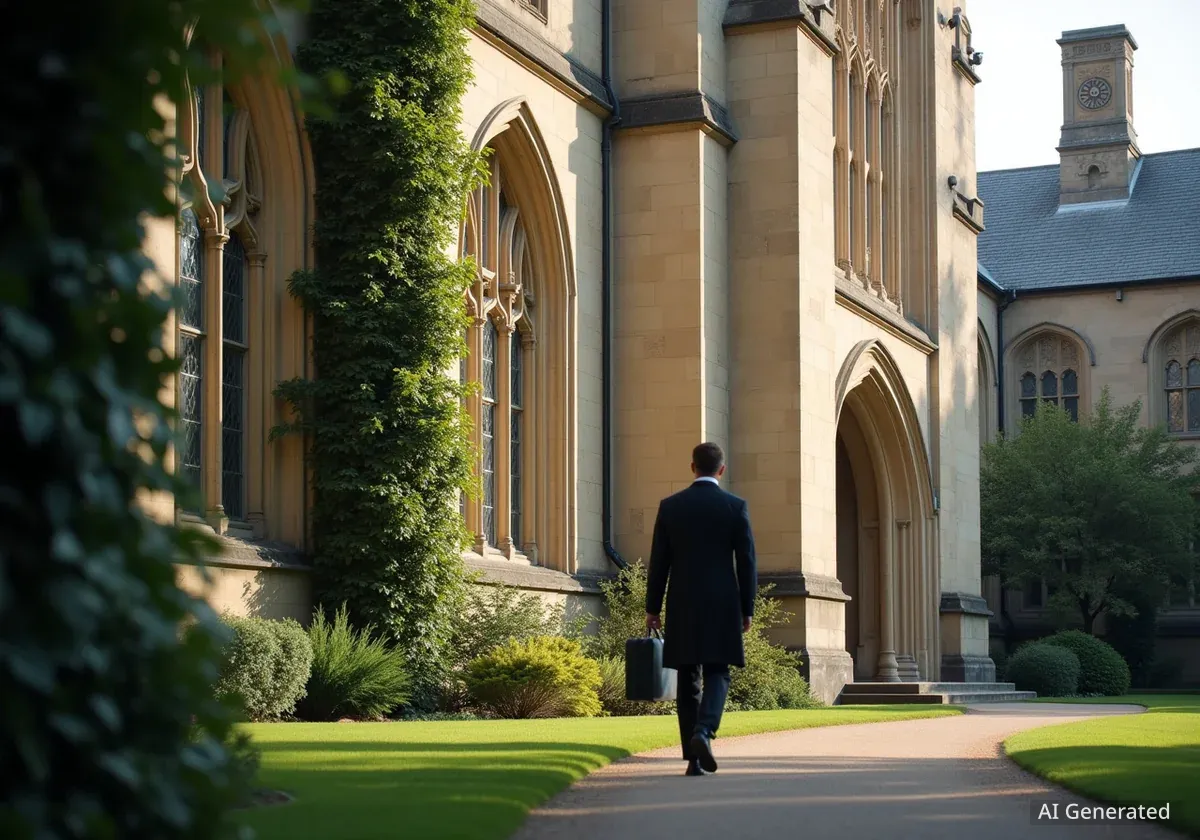A district court judge has ordered Texas State University to reinstate Thomas Alter, a tenured associate history professor who was recently terminated following a speech he gave at a virtual conference. The ruling marks a significant development in an ongoing legal battle concerning free speech and due process rights in higher education.
Key Takeaways
- A Hays County judge granted an injunction ordering Texas State University to reinstate tenured professor Thomas Alter.
- Alter was fired for allegedly inciting violence during a speech at a virtual socialism conference.
- He will be reinstated without pay and is not permitted to teach classes while the lawsuit proceeds.
- Alter's lawsuit claims the university violated his free speech, due process rights, and employment contract.
Judge Grants Injunction for Professor's Return
Hays County District Judge Alicia Key issued an injunction on Friday, just 16 days after Texas State University terminated Thomas Alter's employment. The court's decision requires the university to officially reinstate the tenured associate professor of history while his lawsuit against the institution moves forward.
However, the reinstatement comes with specific conditions. According to a statement provided by the university to The Texas Tribune, Alter will be brought back onto the faculty roster but will not receive pay. Furthermore, he will not be assigned to teach any classes during this period.
Conditions of Reinstatement
Under the court's injunction, Thomas Alter's return to Texas State University is partial. He is officially reinstated as an employee but will remain on an unpaid status and is barred from his teaching duties as the legal case unfolds.
Allegations Stemming from Conference Speech
The university's decision to fire Alter was based on allegations that he incited violence. These claims originated from a speech he delivered during a virtual conference on socialism. The content of the speech became the focal point of the administration's actions, leading to his swift termination.
In response to his dismissal, Alter filed a lawsuit against Texas State University. His legal team argues that the termination was an overreach by the university and a violation of his fundamental rights as a tenured faculty member and a private citizen.
Legal Battle Centers on Free Speech and Due Process
The core of Alter's lawsuit rests on several key legal arguments. He contends that the university's actions infringed upon his First Amendment rights to free speech. Additionally, the suit alleges that the university failed to follow established procedures, thereby violating his right to due process.
Professor's Claims
Alter's legal filing outlines three primary claims against Texas State University:
- Violation of Free Speech: The lawsuit asserts that his speech was protected under the First Amendment.
- Violation of Due Process: It claims the university did not follow proper protocols for disciplining or terminating a tenured professor.
- Breach of Contract: The suit argues that the termination violated the terms of his employment contract with the university.
According to Alter's lawyer, the university will now proceed with its standard internal review process for faculty members. This formal investigation will occur concurrently with the ongoing lawsuit, allowing for a more structured examination of the allegations while the court case continues.
A Broader Trend in Academia
The case involving Thomas Alter is not an isolated incident. In recent weeks, several faculty members at public universities across the United States have faced disciplinary action or termination related to their online speech and public comments. This trend has sparked a national conversation about the boundaries of academic freedom and free speech for educators.
Similar Cases Emerge Nationwide
The situation at Texas State University reflects a pattern seen at other institutions. In a similar case, a district court judge in South Dakota recently ordered the University of South Dakota to reinstate Michael Hook, a tenured art professor. Hook was placed on leave after posting controversial comments on Facebook.
"These cases highlight the growing tension between public universities' desire to manage their public image and the constitutional rights afforded to their faculty members, especially in the digital age."
As these legal challenges progress, they are expected to set important precedents for how public universities handle controversial speech from tenured faculty. The outcomes will likely influence university policies on employee conduct, social media use, and the protections guaranteed by tenure and the First Amendment. The legal proceedings in Thomas Alter's case will be closely watched by academics and legal experts nationwide.





